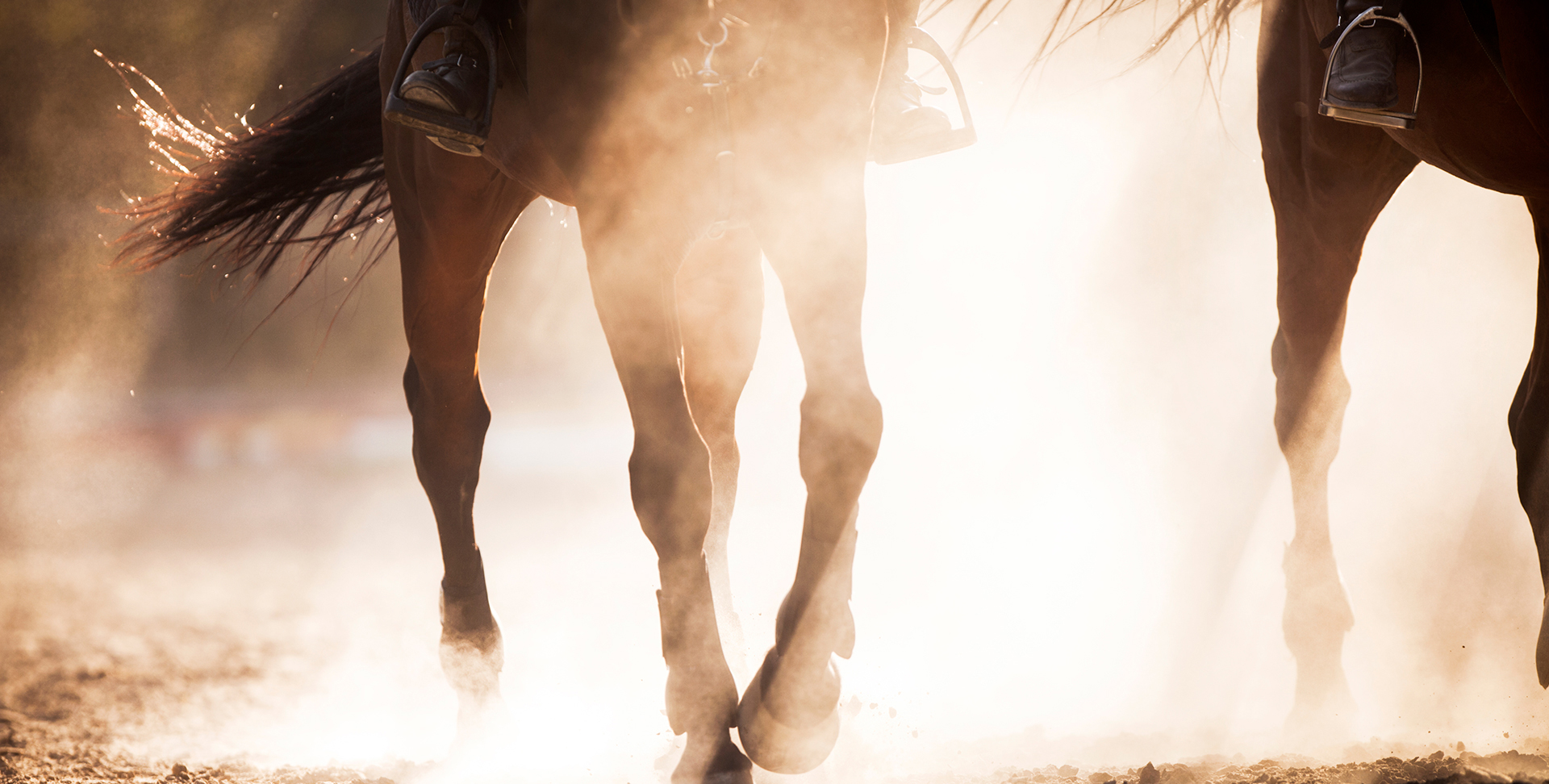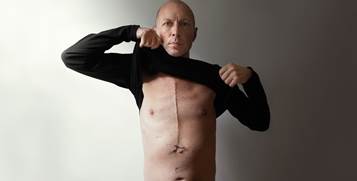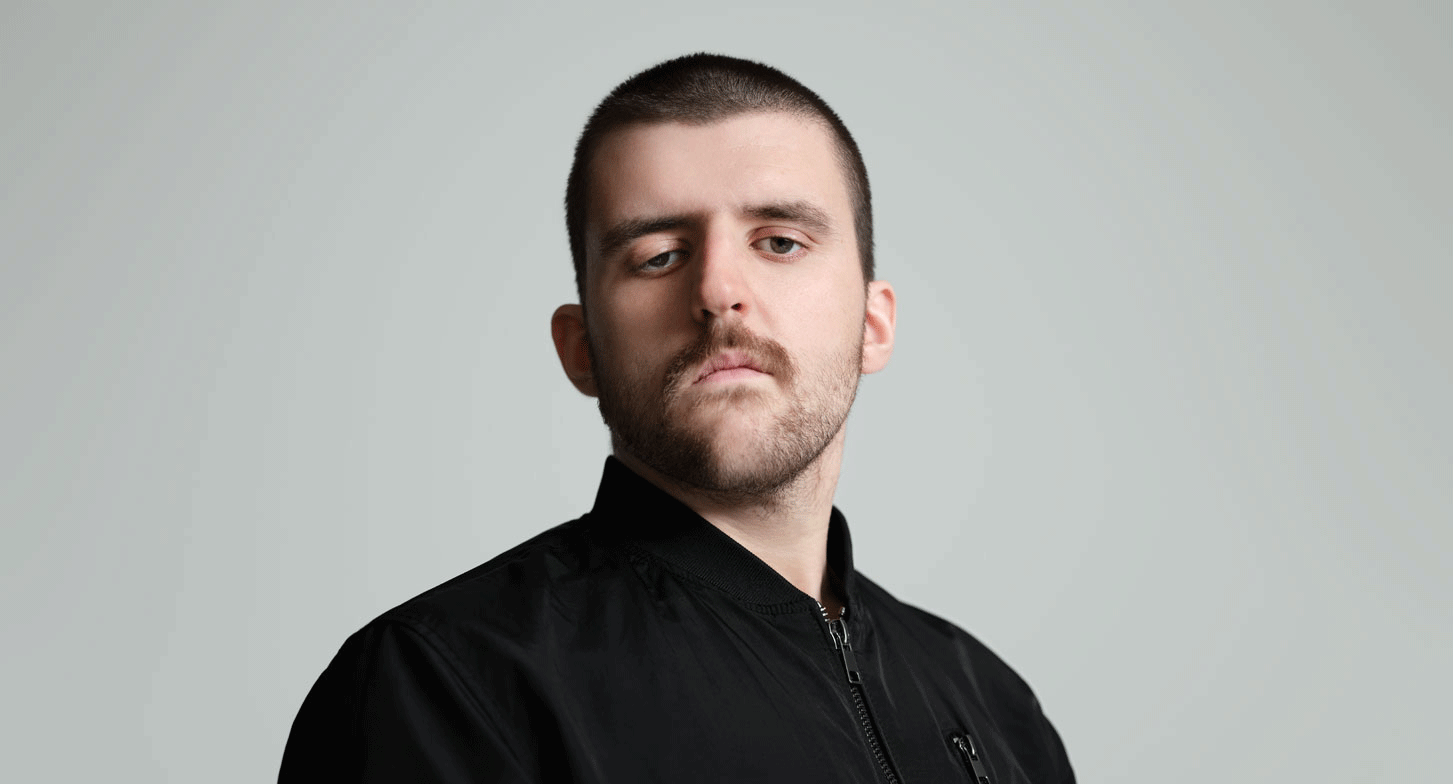
Back in the saddle after stroke
Chapter 1 After the rodeo
On Aug. 23, 2019, my life changed forever. I was scheduled to attend a rodeo with my father that day, so when I woke, I tended to my morning chores, packed up my horses and hit the road.
Throughout the day, I noticed some numbness in my left hand, but I disregarded it and was able to complete two successful runs at the rodeo. We stopped for dinner on the way home and then I settled in for an evening of television to unwind. I was holding the remote in my left hand when suddenly it fell – I couldn’t control the left side of my body.
My wife, Dione, who works in healthcare, noticed something was wrong. She quickly went online to check the FAST signs of stroke and immediately called 9-1-1. I am so thankful she was home that night — she was supposed to be out of town visiting family.
At the hospital in Calgary, after some tests, I was rushed into emergency surgery. When I awoke, I was confused, paralyzed, and feeling angry. The doctors told me I had a serious stroke.
I was unable to walk, dress myself or take myself to the bathroom. Two weeks later I began stroke rehabilitation. I would spend the next 18 months working with physiotherapy and occupational therapy aides. I immediately began working on my ability to walk again. After two months in a wheelchair, I slowly began to regain control of my legs, one at a time. From the wheelchair, I moved to a walker and eventually to using a cane.
Chapter 2 My community rallies
When I was in the hospital, my family spent nights surrounding my bed in deep prayer. I felt stronger knowing they were there. As part of Indigenous culture, there are often many family members present in the hospital. The practice we call fanout calls to extended family and friends, to help with prayers, sweats, smudging or ceremonies.
My community rallied around me for support. I was lucky that my home used to belong to my grandmother, so it was already wheelchair accessible. But so many things inside needed upgrades. My friends and family in the Tsuu T’ina Nation helped prepare my house before I got home. This was a tremendous help.
My wife is my rock. Not only did Dione save my life, but she was also with me every step of the way on my road to recovery. My mother too was so supportive and always wanting to help in any way she could. For me, recovery is all about your mindset and adjusting. I had to want it and know it’s possible, because it really is. And when I put my mind to something, I can achieve it.
My stroke and recovery was a life altering experience that forced me to reflect and make changes. Looking at things wholistically, and from the perspective of my culture, helped me to never give up.
For me this meant working hard to have physical independence. It also meant engaging my whole being in my recovery: spiritually to find strength in my beliefs, mentally to accept what happened and set goals, and emotionally to draw on my inner power.
Chapter 3 Moving forward
Today, I am back at work full-time as the special events coordinator for the Tsuu T’ina Nation.
I am proud that I am able to walk unassisted. After taking time to learn about my condition and myself, I set goals for myself and walk 5,000 steps every day. My left arm and hand still have some paralysis, but I am working on that every day.
I’m learning to take things in stride and not be too hard on myself, but I have also learned to never give up. I am driving by myself, but only on the reserve. Dione still does most of the driving in town and on short trips.
My biggest goal is still to fully recover, get back to routine and rodeo. I enjoy the pleasures of rodeo life and competing. My dreams of steer wrestling will come.
My neurologist and physiotherapists are comfortable with me riding a horse every day, which is not only good for me physically, but also spiritually and emotionally. It’s equine therapy – animals know what you need.
I find myself spending a lot of time talking with God; I acknowledge everything that I’ve been blessed with, and everything that the Lord has taught me.
I am so thankful for every day, as a person who was previously a police officer and executive director for Tsuu T’ina Nation. I appreciate having the opportunity to get up, to go to work and just enjoy life.
My stroke changed my life in more ways than just the physical aspects. But I don’t like to say “I had a stroke,” because I didn’t just have it; I survived it.
- Learn more about stroke.
- Learn how Heart & Stroke is helping to close the gap in Indigenous health


